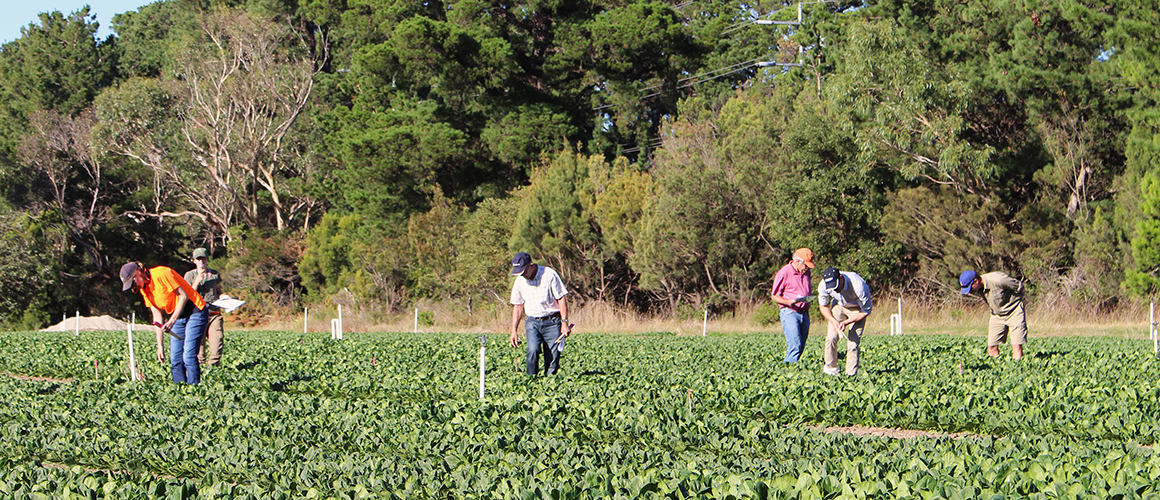VegNET workshop gives growers hands-on experience in pest surveillance
Last week some members of the AUSVEG Science and Extension team were in the field at Taranto Farms in Tyabb, Victoria, to take part in a workshop showcasing exciting new food production technology and trialling a mock surveillance program for a destructive pest that could spread to Australian production zones.
The workshop, organised by the VegNET program, kicked off with a demonstration of food extrusion technology developed by CSIRO which is being used in a levy-funded project to create more pathways for growers to get their product to market.
This technology can take dried or pureed vegetables and turn them into healthy snack products – meaning that produce which doesn’t meet specifications can be transformed into a ready-to-eat product to avoid food waste and to give consumers healthier snacking options.
The machine on display at the workshop can process up to 20kg per hour of vegetable product, either by adding a base (such as rice flour) to bulk out the material or creating a snack purely from the vegetable inputs. The project team say that the technology is ready for commercialisation – not just in creating vegetable snacks, but also in creating value-added products like smoothie powders or using nutrient extracts for nutraceuticals.
Image gallery: VegNET workshop in Tyabb, VIC
Check out some photos from the day, including the mock surveillance in action and the snack products made possible through food extrusion technology!
After the technology demonstration and a Q&A session with the project team and RMCG’s Carl Larsen, the workshop moved out into the paddock to trial the first-ever mock vegetable leafminer surveillance in Australia, designed and led by cesar.
Mock surveillance is part of the levy-funded project preparing for the spread of vegetable leafminer into production zones, and with AUSVEG playing a key role in the project, our team members briefed attendees on how it is helping our industry equip itself to respond to this destructive pest.
In our photo gallery above, you can see how the mock surveillance took place, with the group splitting into teams to look out for ‘damage’ to identify the presence of the pest. You can also see the importance of proper on-farm biosecurity in preventing the spread of not just leafminer, but all pests and diseases: everyone walking between the rows is wearing protective boot covers to avoid spreading outside soil into production areas, and the team used a portable biosecurity kit to avoid anything spreading by hand contact.
We’ve also put together a quick video about the demonstrated food extrusion technology and how it works that you can watch below. Keep an eye out for our upcoming episode of InfoVeg TV that will go into more detail about this project, including how it’s benefiting growers by creating more paths to market!
This post appeared in the AUSVEG Weekly Update published 3 April 2018. Subscribe to the Update using our online form to receive the latest industry news in your inbox every week!













